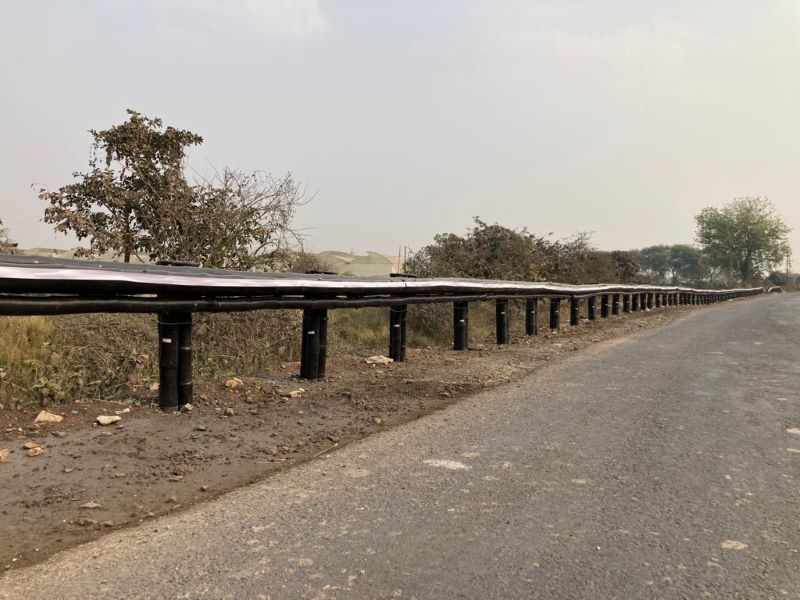'Extraordinary accomplishment': Gadkari lauds world's first bamboo crash barrier installed in Maharashtra highway

New Delhi/IBNS: Union Minister Nitin Gadkari on Tuesday said a 200-meter-long bamboo crash barrier, the first-ever in the world, has been set up on the highway connecting the Chandrapur and Yavatmal districts in Maharashtra.
Gadkari called the bamboo crash barrier as a remarkable achievement for the bamboo sector and the country and presents a perfect alternative to steel and addresses environmental concerns.
In a tweet, Gadkari said, "An extraordinary accomplishment towards achieving #AatmanirbharBharat has been made with the development of the world's first 200-meter-long Bamboo Crash Barrier, which has been installed on the Vani-Warora Highway."
An extraordinary accomplishment towards achieving #AatmanirbharBharat has been made with the development of the world's first 200-meter-long Bamboo Crash Barrier, which has been installed on the Vani-Warora Highway. pic.twitter.com/BPEUhF7l2P
— Nitin Gadkari (@nitin_gadkari) March 4, 2023
The Minister of Road Transport and Highways said this bamboo crash barrier has been named "Bahu Balli".
"It underwent rigorous testing at various government-run institutions, such as the National Automotive Test Tracks (NATRAX) in Pithampur, Indore, and was rated as Class 1 during the Fire Rating Test conducted at the Central Building Research Institute (CBRI) in Roorkee. Additionally, it has also been accredited by the Indian Road Congress," the minister said in another tweet.
Gadkari said that the recycling value of bamboo barriers ranges from 50 to 70 percent, whereas steel barriers have a recycling value ranging from 30 to 50 percent.
"The bamboo species used in the making of this barrier is Bambusa Balcoa, which has been treated with creosote oil and coated with recycled High-Density Poly Ethylene (HDPE). This achievement is remarkable for the bamboo sector and India as a whole, as this crash barrier offers a perfect alternative to steel and addresses environmental concerns and their aftermath," he said.
"Furthermore, it is a rural and agriculture-friendly industry in itself, making it an even more significant milestone," Gadkari added.




